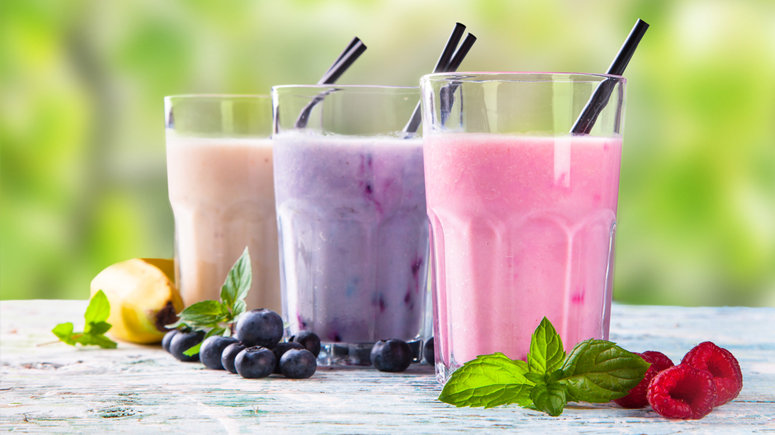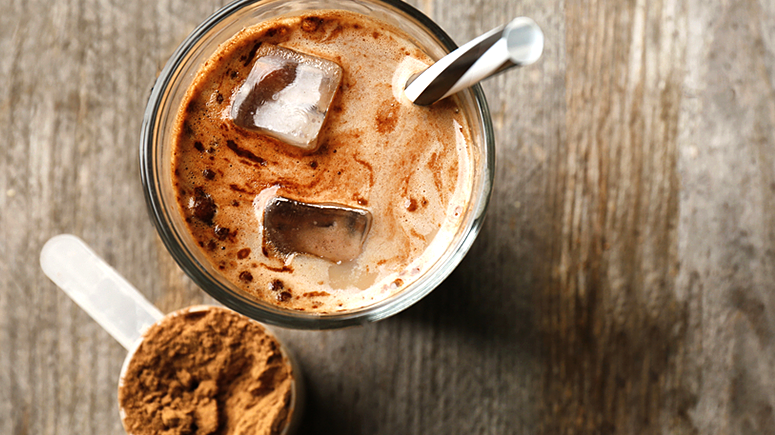
No matter how healthy you’re trying to eat, chances are you still consume foods that provide less nutrients than you need. Protein is a crucial element to keep your muscles strong and provide endurance to every area of the body regardless of age, gender or other differential factors.
Protein powder is one of the most commonly used supplements, with proven benefits for many people, particularly athletes, bodybuilders, vegans and older adults. It represents a concentrated source of protein, from animal or plant foods, and it can be fortified with vitamins and minerals for maximized results.
How much protein should you consume per day?
The right amount of protein can vary from individual to individual, depending on various factors such as level of physical activity, age, gender, muscle mass and health status.
As a general recommendation, to prevent deficiency, one should aim for 0.36 grams per pound of bodyweight which translates into 56 grams a day for an average sedentary man and 46 grams a day for an average sedentary woman.
If you’re trying to lose weight using protein powder,you should take into account your activity level and consume it before or after working out.

What are the main types of protein powder?
Protein powder comes from various sources and in various formulations. The most popular and well-known protein supplement is whey but there are other types, as well, to accommodate various needs and requirements.
Whey
This easily absorbable type of protein comes from milk. It is high in protein and includes all the essential amino acids required by the body. Whey protein is particularly favored by athletes due to its rich content of leucine, one of the BCAAs that promotes muscle growth and recovery. Unsuitable for vegans and lactose intolerant people.
It has been reported to improve body composition of normal and overweight individuals by increasing lean mass and reducing fat mass. Some studies suggest that people with whey protein-based meals registered the largest decrease in appetite and consumed the smallest number of calories at their next meal.
Casein
Similar to whey, casein can also be found in dairy. However, unlike whey, it has a slower absorption rate thus reducing the rate of muscle protein breakdown. That is why it is recommended to be taken at night.
According to various studies, casein may be more efficient than whey in terms of improving body composition during strength training. It also includes several bioactive peptides which are beneficial for the immune and digestive systems.
Soy
This type of plant-based protein is quite popular among people who do not consume dairy, like vegans, or people allergic to dairy foods. It includes all the essential amino acids and is rich in nutrients.
Due to its leucine content, an important BCAA, soy protein is more efficient in synthetizing protein than casein, but inferior to whey in this respect. Some studies, however, suggest that soy protein is as effective in promoting weight-loss as its animal-based counterparts.
Pea
Pea protein is a very good alternative to soy and milk-based protein. This plant-based type is rich in BCAAs, particularly arginine for improved blood flow and heart health, and a great source of iron.
In combination with consistent training, pea protein has been shown to build and increase muscle mass. Being vegan and hypoallergenic, it can be successfully used in any diet.
Hemp
Another plant-based protein on the rise is hemp. It is rich in healthy omega-3 fatty acids, healthy fats and minerals and much more fiber than other plant-based protein. It is believed that hemp protein is more easily digested than other plant-based proteins due to containing two types of protein than break down really quick.
Used by bodybuilders and people trying to gain weight or build muscle mass. Recommended after strenuous workouts for efficient muscle recovery.
Egg protein
Eggs are on top when it comes to high-quality protein. They have the highest protein digestibility score of all whole foods and one of the highest satiety rates.
However, ggg protein is usually made of egg whites instead of whole eggs. Due to this, egg protein powder may not be as effective as whey protein in terms of keeping you full. It can be, however, a very efficient alternative for people with dairy allergies who still want to consume animal-based protein.
Why should you consume protein powder?
Protein is an extremely important macronutrient with an essential role in building muscle, repairing tissues, and producing enzymes, hormones and neurotransmitters for various functions.
Although protein powder supplements are not a necessity for everyone, they can provide major help especially in the following cases:
- To facilitate weight loss and prevent weight gain
- To boost muscle growth and prevent muscle loss
- To amp workouts
- To promote muscle repair and recovery
Takeaway
Protein should mainly come from meat, fish, poultry and eggs, but when whole foods are not an option, protein powder is the next best thing. That’s because protein powders represent a convenient and concentrated form of high-quality protein which can accommodate different dietary preferences, health needs and fitness goals.
It can help you achieve your required level of protein but also provide other important nutrients to reach an optimal nutrient intake and enhance your overall health.

























